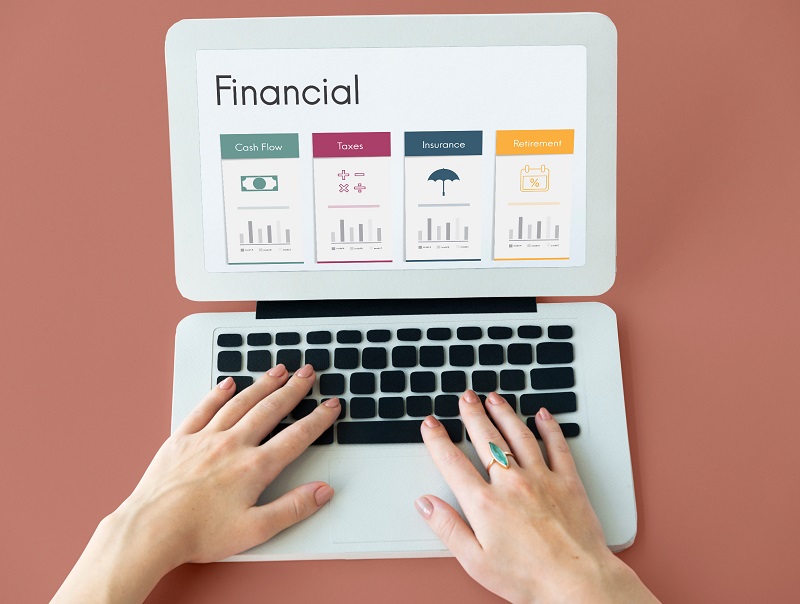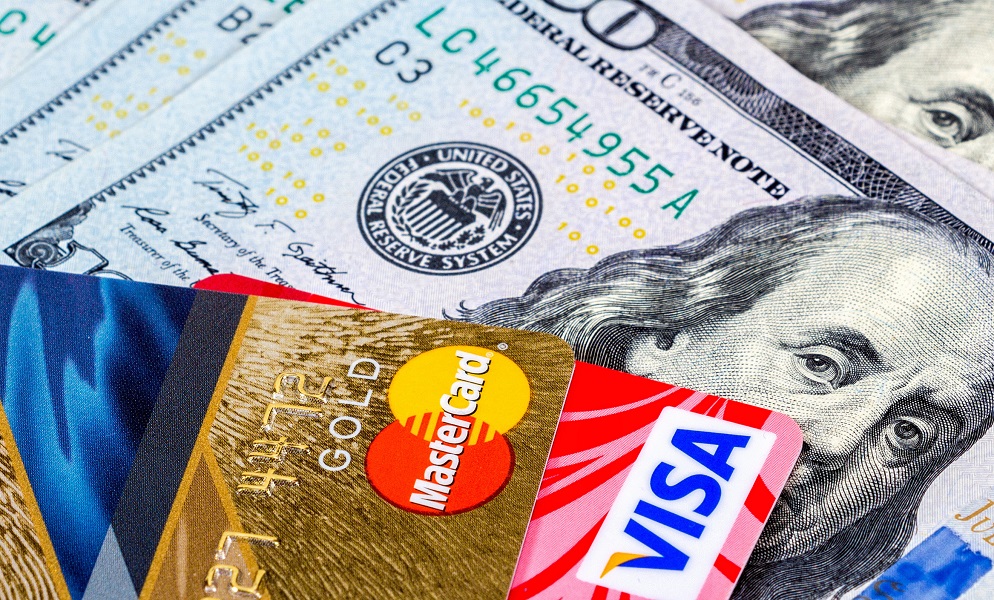 Debt can be a significant burden, affecting not just your finances but also your mental and emotional well-being. Whether you’re dealing with credit card debt, student loans, or other financial obligations, finding effective ways to manage and overcome being in debt is crucial for your long-term financial health. Here are 9 practical tips to help you take control of your debt and work towards financial freedom. Using these tips can help you regain financial stability and peace of mind.
Debt can be a significant burden, affecting not just your finances but also your mental and emotional well-being. Whether you’re dealing with credit card debt, student loans, or other financial obligations, finding effective ways to manage and overcome being in debt is crucial for your long-term financial health. Here are 9 practical tips to help you take control of your debt and work towards financial freedom. Using these tips can help you regain financial stability and peace of mind.
1. Assess Your Debt Situation
 The first step in managing and overcoming being in debt is to get a clear understanding of your financial situation. Make a list of all your debts, including the amounts owed, interest rates, and minimum payments. This will give you a comprehensive view of your debt and help you prioritize which ones to tackle first. Knowing exactly how much you owe and to whom will enable you to create a realistic plan to pay off your debt. It’s essential to face your debt head-on and avoid the temptation to ignore or downplay it. A clear assessment is the foundation of any effective debt management strategy.
The first step in managing and overcoming being in debt is to get a clear understanding of your financial situation. Make a list of all your debts, including the amounts owed, interest rates, and minimum payments. This will give you a comprehensive view of your debt and help you prioritize which ones to tackle first. Knowing exactly how much you owe and to whom will enable you to create a realistic plan to pay off your debt. It’s essential to face your debt head-on and avoid the temptation to ignore or downplay it. A clear assessment is the foundation of any effective debt management strategy.
2. Create a Budget
 Creating a budget is crucial for managing your finances and paying off debt. Start by listing your monthly income and expenses, including all your debt payments. Identify areas where you can cut back on spending and allocate those savings towards your debt repayment. A budget helps you track your spending and ensures that you’re living within your means. It also allows you to see where your money is going and make necessary adjustments to free up funds for paying off debt. Stick to your budget to avoid accumulating more debt and stay on track toward financial stability.
Creating a budget is crucial for managing your finances and paying off debt. Start by listing your monthly income and expenses, including all your debt payments. Identify areas where you can cut back on spending and allocate those savings towards your debt repayment. A budget helps you track your spending and ensures that you’re living within your means. It also allows you to see where your money is going and make necessary adjustments to free up funds for paying off debt. Stick to your budget to avoid accumulating more debt and stay on track toward financial stability.
3. Prioritize Your Debts
 Not all debts are created equal, and some may require more urgent attention than others. Prioritize your debts based on factors such as interest rates and outstanding balances. Focus on paying off high-interest debts first, as they accrue more interest over time and can quickly spiral out of control. One effective strategy is the debt snowball method, where you focus on paying off your smallest debts first, gradually working your way up to larger ones. This approach provides quick wins and can motivate you to continue paying off your debts. Alternatively, the debt avalanche method focuses on paying off high-interest debts first, which can save you more money in the long run.
Not all debts are created equal, and some may require more urgent attention than others. Prioritize your debts based on factors such as interest rates and outstanding balances. Focus on paying off high-interest debts first, as they accrue more interest over time and can quickly spiral out of control. One effective strategy is the debt snowball method, where you focus on paying off your smallest debts first, gradually working your way up to larger ones. This approach provides quick wins and can motivate you to continue paying off your debts. Alternatively, the debt avalanche method focuses on paying off high-interest debts first, which can save you more money in the long run.
4. Negotiate with Creditors
 Don’t be afraid to reach out to your creditors and negotiate better terms. Many creditors are willing to work with you if you’re facing financial difficulties, as they would rather receive some payment than none at all. You can negotiate lower interest rates, extended payment terms, or even a reduced payoff amount. Explain your situation honestly, and be prepared to provide documentation of your financial hardship. Successful negotiations can lower your monthly payments and make it easier to manage your debt, allowing you to focus on paying it off more quickly.
Don’t be afraid to reach out to your creditors and negotiate better terms. Many creditors are willing to work with you if you’re facing financial difficulties, as they would rather receive some payment than none at all. You can negotiate lower interest rates, extended payment terms, or even a reduced payoff amount. Explain your situation honestly, and be prepared to provide documentation of your financial hardship. Successful negotiations can lower your monthly payments and make it easier to manage your debt, allowing you to focus on paying it off more quickly.
5. Consider Debt Consolidation
 Debt consolidation involves combining multiple debts into a single loan with a lower interest rate. This can simplify being in debt by reducing the number of payments you need to make each month and potentially lowering your overall interest costs. There are various ways to consolidate debt, including personal loans, balance transfer credit cards, and home equity loans. Choose the option that best suits your financial situation and offers the most favorable terms. Debt consolidation can make it easier to manage your debt and reduce your financial stress.
Debt consolidation involves combining multiple debts into a single loan with a lower interest rate. This can simplify being in debt by reducing the number of payments you need to make each month and potentially lowering your overall interest costs. There are various ways to consolidate debt, including personal loans, balance transfer credit cards, and home equity loans. Choose the option that best suits your financial situation and offers the most favorable terms. Debt consolidation can make it easier to manage your debt and reduce your financial stress.
6. Cut Unnecessary Expenses
 One of the most effective ways to free up money for debt repayment is to cut unnecessary expenses. Review your budget and identify areas where you can reduce spending, such as dining out, entertainment, or subscription services. Redirect these savings towards paying off your debt. Making small sacrifices can add up over time and significantly impact your ability to pay off debt. Focus on distinguishing between needs and wants, and prioritize spending that supports your financial goals. Cutting back on non-essential expenses can accelerate your journey to becoming debt-free.
One of the most effective ways to free up money for debt repayment is to cut unnecessary expenses. Review your budget and identify areas where you can reduce spending, such as dining out, entertainment, or subscription services. Redirect these savings towards paying off your debt. Making small sacrifices can add up over time and significantly impact your ability to pay off debt. Focus on distinguishing between needs and wants, and prioritize spending that supports your financial goals. Cutting back on non-essential expenses can accelerate your journey to becoming debt-free.
7. Increase Your Income
 In addition to cutting expenses, increasing your income can help you pay off debt faster. Look for opportunities to earn extra money, such as taking on a part-time job, freelancing, or selling unused items. Even a small increase in income can make a big difference in your ability to pay down debt. Explore ways to leverage your skills and talents to generate additional income. Whether it’s starting a side hustle or asking for a raise at your current job, increasing your earnings can provide the extra funds needed to tackle being in debt more aggressively.
In addition to cutting expenses, increasing your income can help you pay off debt faster. Look for opportunities to earn extra money, such as taking on a part-time job, freelancing, or selling unused items. Even a small increase in income can make a big difference in your ability to pay down debt. Explore ways to leverage your skills and talents to generate additional income. Whether it’s starting a side hustle or asking for a raise at your current job, increasing your earnings can provide the extra funds needed to tackle being in debt more aggressively.
8. Use Windfalls Wisely
 If you receive unexpected money, such as a tax refund, bonus, or inheritance, use it wisely to pay off debt. While it may be tempting to spend windfalls on luxuries or non-essential items, using them to reduce your debt can significantly impact your financial health. Applying windfalls directly to your debt can help you pay it off faster and save on interest costs. It’s an opportunity to make a substantial dent in your debt and move closer to financial freedom. Prioritize paying off high-interest debt first to maximize the benefits of your windfall.
If you receive unexpected money, such as a tax refund, bonus, or inheritance, use it wisely to pay off debt. While it may be tempting to spend windfalls on luxuries or non-essential items, using them to reduce your debt can significantly impact your financial health. Applying windfalls directly to your debt can help you pay it off faster and save on interest costs. It’s an opportunity to make a substantial dent in your debt and move closer to financial freedom. Prioritize paying off high-interest debt first to maximize the benefits of your windfall.
9. Seek Professional Help
 If you’re struggling to manage being in debt on your own, consider seeking professional help. Credit counseling agencies can provide guidance on budgeting, debt management, and financial planning. They can also negotiate with creditors on your behalf and help you develop a debt repayment plan. Professional help can provide the support and resources you need to take control of your debt and avoid common pitfalls. Don’t hesitate to reach out for assistance if you feel overwhelmed by your financial situation. A credit counselor can offer personalized advice and help you create a strategy to overcome your debt.
If you’re struggling to manage being in debt on your own, consider seeking professional help. Credit counseling agencies can provide guidance on budgeting, debt management, and financial planning. They can also negotiate with creditors on your behalf and help you develop a debt repayment plan. Professional help can provide the support and resources you need to take control of your debt and avoid common pitfalls. Don’t hesitate to reach out for assistance if you feel overwhelmed by your financial situation. A credit counselor can offer personalized advice and help you create a strategy to overcome your debt.
Taking Control of Your Financial Future
 Managing and overcoming debt is a journey that requires commitment, discipline, and strategic planning. By implementing these tips and taking proactive steps, you can regain control of your finances and work towards a debt-free future. Remember, the key to overcoming being in debt is to stay focused on your goals, make informed financial decisions, and seek support when needed. With persistence and the right approach, you can achieve financial freedom and enjoy the peace of mind that comes with being debt-free. Start today and take control of your financial future, one step at a time.
Managing and overcoming debt is a journey that requires commitment, discipline, and strategic planning. By implementing these tips and taking proactive steps, you can regain control of your finances and work towards a debt-free future. Remember, the key to overcoming being in debt is to stay focused on your goals, make informed financial decisions, and seek support when needed. With persistence and the right approach, you can achieve financial freedom and enjoy the peace of mind that comes with being debt-free. Start today and take control of your financial future, one step at a time.

Toi Williams began her writing career in 2003 as a copywriter and editor and has authored hundreds of articles on numerous topics for a wide variety of companies. During her professional experience in the fields of Finance, Real Estate, and Law, she has obtained a broad understanding of these industries and brings this knowledge to her work as a writer.












